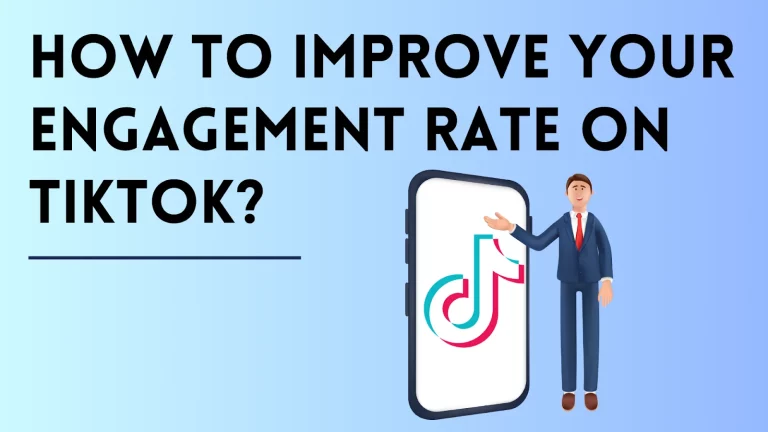In the vast digital landscape, Google stands as a titan, influencing billions of lives daily through search results, advertising, and data collection. Its dominance shapes how information is accessed, shared, and perceived. However, a growing chorus of critics and skeptics claim that Google is Lying, raising serious questions about transparency, bias, and ethical practices. This article delves deep into these allegations, examining whether they hold water, the evidence supporting them, and what this means for us as users and consumers of digital content.
Understanding the Nature of the Allegation
What does it mean to say “Google is Lying”?
At its core, the accusation that Google is Lying suggests that the company intentionally or negligently misleads users about its practices, algorithms, and policies. This could manifest as skewed search results, misleading advertising disclosures, or hiding information about data collection. Critics argue that Google’s influence may distort reality, manipulate perceptions, or obscure the truth to serve corporate interests.
Common contexts where allegations arise
- Privacy concerns: Claims that Google downplays the extent of data collection or misleads users about how their information is used.
- Search results manipulation: Allegations that Google suppresses or promotes certain content to favor specific narratives or advertisers.
- Advertising practices: Accusations that Google’s ad algorithms are opaque, potentially deceptive, or biased.
- Data collection and user tracking: Concerns that Google secretly tracks users beyond what is publicly disclosed, violating privacy expectations.
This environment of skepticism is compounded by the proliferation of misinformation and disinformation, which complicates the public’s ability to discern truth from falsehood within digital spaces.
Historical Instances and Controversies
Major past scandals involving Google
Privacy breach cases
Google has faced multiple high-profile privacy controversies, such as the Google+ data leak in 2018, where user information was exposed due to security flaws. These incidents fueled distrust regarding the company’s transparency about data security and privacy practices.
Suppression or manipulation of search results
Several investigations have alleged that Google manipulates search rankings to hide unfavorable content—be it political information, competitor sites, or controversial topics. This fuels the narrative that Google is Lying about its commitment to an unbiased search experience.
Ethical concerns in algorithm design
Critics argue that Google’s algorithms may subtly favor certain viewpoints or suppress others, raising ethical questions and accusations of bias, which can influence public opinion and access to information.
Influence on trust
These controversies collectively contribute to a growing suspicion that Google’s practices may not always align with its public claims about neutrality and transparency.
Google’s Business Model and Its Implications
Advertising-driven revenue and transparency
Google’s primary revenue comes from advertising through platforms like Google Ads. This creates an inherent conflict of interest, where content promoting higher engagement or clicks might be prioritized, sometimes at the expense of accuracy or objectivity. Critics argue this incentivizes the company to prioritize profit over transparency.
Data collection practices
What data Google collects
Google gathers extensive information—search history, location, device data, browsing habits, and more—often without clear user awareness.
How data is used and monetized
This data fuels targeted advertising, improves algorithms, and may even be shared with third parties, raising questions about whether Google is truthful about its data handling practices.
Algorithm priorities vs. public interest
- Amplification of certain content: Algorithms may push trending or profitable content, regardless of its factual accuracy.
- Suppression of others: Certain viewpoints or sources might be buried due to internal policies, leading to accusations of bias or censorship.
This dynamic underscores the claim that Google is Lying about its impartiality and transparency.
Evidence and Claims Supporting the “Lying” Narrative
Examples cited by critics
Search result biases
Investigative reports have shown that search results can favor certain political entities, companies, or ideologies, challenging Google’s insistence on neutrality.
Google’s statements vs. internal practices
Discrepancies between what Google publicly states—such as transparency reports—and leaked documents or whistleblower testimonies suggest inconsistencies, fueling suspicions that the company isn’t fully truthful.
Transparency reports and their limitations
While Google publishes transparency reports, critics contend they often omit critical data or downplay issues like government censorship or data requests, contributing to skepticism.
Whistleblower testimonies
Leaked internal documents or testimonies from ex-employees have revealed practices that contradict Google’s public assurances about fairness and transparency.
Investigative reports and their findings
Media investigations, including those from reputable outlets like The Wall Street Journal, have uncovered practices indicating bias or misrepresentation, reinforcing the narrative that Google is Lying.
Counterarguments and Google’s Defense
Official statements and transparency initiatives
Transparency reports
Google contends that it provides regular transparency reports highlighting government data requests, content removals, and more. However, critics argue these efforts are insufficient or intentionally misleading.
Community guidelines and policies
Google emphasizes its commitment to adhering to community standards designed to prevent misinformation, yet its enforcement and transparency around these policies are often questioned.
Technological challenges of maintaining unbiased algorithms
Google asserts that its algorithms are complex and challenges in eliminating bias are technical rather than deceptive, emphasizing that the company continually works to improve fairness.
Efforts to improve transparency and user control
Google has introduced features such as privacy checkups and ad preferences management, but critics believe these measures are insufficient to address deeper issues of misinformation and bias.
The Role of Regulation and Public Scrutiny
Government investigations and legal actions
Antitrust cases
Google faces lawsuits, including those from the US Department of Justice, alleging monopolistic practices. Such legal efforts aim to curb potential deception or unfair dominance.
Privacy regulations (GDPR, CCPA)
Regulations like the General Data Protection Regulation and California Consumer Privacy Act aim to enforce transparency about data collection, challenging allegations that Google is lying about its privacy policies.
Impact of regulation on corporate honesty
Legal actions can incentivize Google to be more forthright, but skeptics argue that enforcement is often weak or slow, allowing questionable practices to persist.
The importance of media literacy and critical assessment
As users, staying critical and informed helps combat misinformation, empowering individuals to recognize when Google is Lying or misleading about its practices.
How Users Can Protect Themselves
Tips for understanding search results and biases
- Use multiple search engines, such as DuckDuckGo or Bing.
- Be skeptical of top results, especially on controversial topics.
- Verify information with reputable sources.
Using alternative search engines
Opting for privacy-focused engines can reduce data collection and bias, mitigating some issues related to Google’s transparency.
Privacy tools and settings
Adjust privacy settings, use ad blockers, and employ VPNs to limit data collection and tracking.
Staying informed about tech company practices
Subscribe to credible tech watchdog sites and read reports from organizations like the Electronic Frontier Foundation (EFF) to stay up-to-date.
The Broader Ethical and Societal Implications
Trust in digital platforms and democracy
The potential for Google is Lying to influence public opinion threatens democratic processes, emphasizing the importance of transparency and accountability.
The power imbalance between corporations and consumers
When a single corporation controls so much information flow, ethical concerns about manipulation and inequality arise, raising questions about accountability.
Ethical responsibilities of tech giants
As gatekeepers of information, companies like Google have a moral responsibility to uphold truthfulness and transparency, with failures risking societal harm.
Key Points Summary
| Aspect | Details |
|---|---|
| Allegations | Google is Lying about privacy, bias, and transparency |
| Examples | Search biases, data practices, internal disputes |
| Counterpoints | Official transparency efforts, technical challenges |
| Legal actions | Antitrust, privacy regulations |
| Protection tips | Use alternative search engines, privacy tools, verify info |
Frequently Asked Questions (FAQs)
- What are the main reasons people believe Google is lying? Concerns about biased search results, data privacy, and lack of transparency drive these beliefs.
- Is there concrete evidence that Google intentionally deceives users? Some whistleblower reports and investigations suggest misconduct, but definitive proof of intentional deception remains debated.
- How does Google respond to allegations of lying or bias? Google states it works to improve transparency, fairness, and user privacy, providing reports and tools to build trust.
- Can users do anything to detect or avoid bias in search results? Yes, by using multiple search engines, verifying sources, and adjusting privacy settings.
- Are regulations helping to hold Google accountable? Regulatory efforts like antitrust cases and privacy laws are steps forward, but enforcement varies.
- What can I do to protect my privacy online? Use privacy-focused browsers, VPNs, ad blockers, and review privacy settings regularly.
- Is Google actively trying to improve its transparency? Yes, through transparency reports, policies, and privacy controls, but critics say these efforts aren’t enough.
- How does this issue affect democracy and society? Misinformation and biased content can influence elections and public opinion, emphasizing the need for vigilance.
- Should I stop trusting Google altogether? Not necessarily; instead, stay informed, use multiple tools, and critically evaluate the information you receive.
- Where can I learn more about tech companies’ practices? Reputable sources include organizations like the Electronic Frontier Foundation and investigative journalism outlets.
In conclusion, while Google is Lying remains a contentious and complex issue, awareness and critical engagement are our best tools. As consumers, understanding the technology and its potential biases helps us navigate the digital world more safely and responsibly. Staying informed, questioning assumptions, and leveraging privacy tools empower us to take control of our online experiences amidst ongoing debates on transparency and trust in the digital age.





